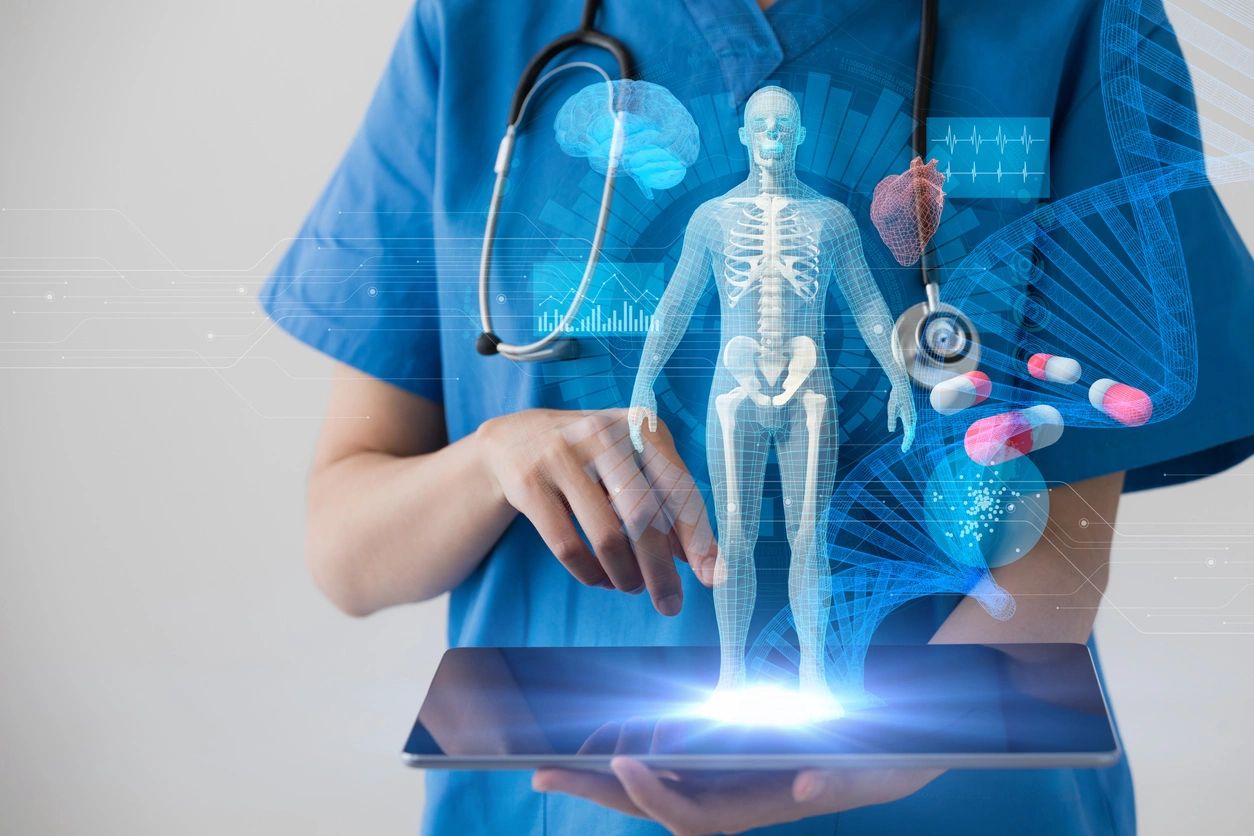State-of-the-Art Medical Interventions for Male Hypogonadism
Male hypogonadism (MH) is a medical condition that presents a significant challenge for many men, affecting their physical, sexual, and psychological well-being. Dr. Mahesh, with his extensive expertise in this area, offers a compassionate and comprehensive approach to the diagnosis and treatment of this condition. MH occurs when the testicles don’t produce sufficient amounts of testosterone, sperm, or both. Testosterone, a vital hormone in men, plays a crucial role in maintaining and developing various aspects of male health.
This hormone is essential for the development of sexual features, the maintenance of muscle mass, ensuring adequate levels of red blood cells, supporting bone density, and fostering a sense of well-being. Moreover, testosterone is fundamental for both sexual and reproductive function. Understanding the multifaceted role of testosterone elucidates why male hypogonadism can have such profound impacts.
The onset of hypogonadism can occur at any age, and the risks and implications vary depending on when it begins. For instance, developing this condition at a younger age can have different consequences compared to its onset later in life. Early diagnosis and intervention are key in managing the condition effectively.
Research indicates that untreated hypogonadism may increase the risk of developing other health conditions, such as cardiovascular disease and type 2 diabetes. This highlights the importance of not just treating the symptoms of hypogonadism but also considering its impact on overall health.
Dr. Mahesh adheres to the latest male hypogonadism guidelines to ensure that his patients receive the most current and effective treatment. He starts with a thorough evaluation to diagnose the condition, which includes understanding the patient’s medical history, performing physical examinations, and conducting necessary tests.
Male hypogonadism (MH) is a medical condition that presents a significant challenge for many men, affecting their physical, sexual, and psychological well-being. Dr. Mahesh, with his extensive expertise in this area, offers a compassionate and comprehensive approach to the diagnosis and treatment of this condition. MH occurs when the testicles don’t produce sufficient amounts of testosterone, sperm, or both. Testosterone, a vital hormone in men, plays a crucial role in maintaining and developing various aspects of male health.
This hormone is essential for the development of sexual features, the maintenance of muscle mass, ensuring adequate levels of red blood cells, supporting bone density, and fostering a sense of well-being. Moreover, testosterone is fundamental for both sexual and reproductive function. Understanding the multifaceted role of testosterone elucidates why male hypogonadism can have such profound impacts.
The onset of hypogonadism can occur at any age, and the risks and implications vary depending on when it begins. For instance, developing this condition at a younger age can have different consequences compared to its onset later in life. Early diagnosis and intervention are key in managing the condition effectively.
Research indicates that untreated hypogonadism may increase the risk of developing other health conditions, such as cardiovascular disease and type 2 diabetes. This highlights the importance of not just treating the symptoms of hypogonadism but also considering its impact on overall health.
Dr. Mahesh adheres to the latest male hypogonadism guidelines to ensure that his patients receive the most current and effective treatment. He starts with a thorough evaluation to diagnose the condition, which includes understanding the patient’s medical history, performing physical examinations, and conducting necessary tests.

Causes and Risk Factors
When addressing the complexities of male hypogonadism, Dr. Mahesh takes a detailed and empathetic approach, especially in understanding and explaining the diverse causes of this condition. Male hypogonadism can stem from a variety of causes, categorised primarily into two types: primary and secondary hypogonadism.
Primary hypogonadism, originating from issues within the testes, can be triggered by several factors. Autoimmune disorders, where the body’s immune system mistakenly attacks the testicular tissue, are significant contributors. Genetic disorders, such as Klinefelter syndrome, also play a crucial role in the development of primary hypogonadism, affecting the normal functioning of the testicles.
Severe infections that impact the testes, along with chronic liver and kidney diseases, can impair the organs’ ability to produce testosterone and sperm. Another notable cause is undescended testes, a condition where one or both testicles fail to move into the proper position in the scrotum during foetal development. This can lead to reduced hormone production and fertility issues.
Exposure to radiation, whether for medical treatment or due to environmental factors, can adversely affect the testicles’ functionality. Similarly, surgery involving the sexual organs, particularly procedures that directly involve the testicles or related structures, can result in primary hypogonadism.
On the other hand, secondary hypogonadism stems from problems in the brain, specifically the hypothalamus or the pituitary gland. These parts of the brain are responsible for signalling the testes to produce testosterone. Any disruption in this signalling process can lead to reduced hormone production. Understanding these distinctions is crucial for accurate diagnosis and effective treatment, and Dr. Mahesh is adept at navigating these complexities.
Dr. Mahesh’s approach to treating male hypogonadism is comprehensive and patient-focused, taking into account the various causes and their implications on health. His aim is not only to address the immediate symptoms but also to enhance the overall quality of life of his patients.
Diagnosis and Approach
For men who are at risk of, or may already be experiencing symptoms of hypogonadism, the initial step involves a thorough medical history review. This process is crucial as it helps Dr. Mahesh to understand not just the present symptoms but also any past health issues, lifestyle factors, and family medical history that could contribute to hypogonadism.
Following the medical history, Dr. Mahesh conducts a detailed physical examination. This step is essential for identifying physical signs that may indicate hypogonadism, such as changes in hair distribution, muscle mass, or testicular size.
Blood tests play a pivotal role in the diagnosis of male hypogonadism. These tests are designed to measure testosterone levels, which are critical in confirming the diagnosis. However, diagnosing hypogonadism is not always straightforward. Since testosterone levels naturally fluctuate throughout the day, often peaking in the morning, it may require several measurements at different times to accurately assess the hormone levels.
The treatment for male hypogonadism typically involves hormone replacement therapy to normalise testosterone levels. However, each treatment plan is tailored to the individual’s specific needs, considering factors such as age, severity of symptoms, and overall health.


Care and Treatment Approaches
Dr. Mahesh adopts a holistic approach that combines both lifestyle modifications and medical therapy, tailored to each patient’s unique circumstances and needs. When it comes to lifestyle modifications, Dr. Mahesh emphasises the importance of weight loss programs, especially since obesity can be both a cause and a consequence of low testosterone levels. He provides guidance and support for implementing effective and sustainable weight loss strategies.
Smoking can adversely affect testosterone levels and overall health, and quitting smoking is a significant step towards improving hormonal balance and well-being. Additionally, Dr. Mahesh encourages his patients to increase their physical activity. Regular exercise not only helps in weight management but also naturally boosts testosterone levels, contributing to better health outcomes.
Dr. Mahesh carefully evaluates each patient’s condition to determine the most appropriate form of testosterone replacement therapy and this personalised approach ensures that the treatment aligns with the patient’s specific health profile and lifestyle. For patients with hypogonadism caused by pituitary tumours, surgery might be required. In such cases, Dr. Mahesh works closely with a multidisciplinary team to ensure comprehensive care.
Dr. Mahesh’s approach to treating male hypogonadism is multifaceted and patient-centred. He combines lifestyle interventions with medical treatments, including testosterone replacement therapy, to effectively manage the condition. His focus is on not just alleviating the symptoms but also improving the overall quality of life for his patients, adhering to the latest guidelines and best practices.
Frequently Asked Questions
Why is testosterone given in male hypogonadism?
Testosterone is given to treat male hypogonadism because it helps replace the hormone that the body is unable to produce in sufficient quantities.
What is the cause of hypogonadism in males?
Causes include genetic disorders, undescended testicles, injuries to the testicles, chemotherapy, pituitary disorders, and chronic health conditions.
What deficiency causes hypogonadism?
A deficiency in sex hormones, primarily testosterone in males, causes hypogonadism.
Which of the following are causes of hypogonadism?
Genetic disorders, pituitary gland disorders, testicular injury, obesity, and certain chronic diseases.
What are the symptoms of hypogonadism in males?
Symptoms include reduced sex drive, erectile dysfunction, fatigue, decreased muscle mass, and infertility.
What is the best solution for hypogonadism?
The best solution often involves hormone replacement therapy, lifestyle changes, and treating underlying conditions.
Can hypogonadism be reversed naturally?
In some cases, lifestyle changes like diet and exercise can help, but medical treatment is often necessary.
What is the ICD-10 code for hypogonadism?
The ICD-10 code for hypogonadism is E29.1.
What is male hypogonadism?
Male hypogonadism is a condition where the body doesn’t produce enough testosterone.
What is the ICD 9 code for hypogonadism male?
The ICD-9 code for male hypogonadism is 257.2.
Can male hypogonadism be cured?
While some forms can be treated effectively, a cure depends on the cause and may not be possible in all cases.
How do you diagnose hypogonadism in males?
Diagnosis involves medical history, physical examination, and blood tests to measure hormone levels.
How do you fix hypogonadism naturally?
Improving diet, exercise, and overall health can help, but medical intervention is often required.
How do I know if my testosterone is low?
Symptoms of low testosterone include decreased libido, fatigue, muscle loss, and mood changes. Blood tests can confirm low levels.

